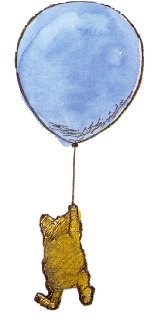 If you’ve been following along at home, and there’s absolutely no reason why you should, you might have noticed I usually write about reading. Occasionally feeling. Sometimes reading and feeling, if I’m in a particularly brave mood. Also sometimes television. Also videogames.
If you’ve been following along at home, and there’s absolutely no reason why you should, you might have noticed I usually write about reading. Occasionally feeling. Sometimes reading and feeling, if I’m in a particularly brave mood. Also sometimes television. Also videogames.
What I don’t tend to talk about is writing. And that’s because writing about writing, and writing about writing feelz in particular, makes me self-conscious.
It’s my hobby, y’know? So going on about it feels like the equivalent of sitting some well-meaning acquaintance down over tea and scones, and going on and on about my roleplaying character or my collection of turn-of-the-century garden gnomes.
(Err, I do not have a collection of turn-of-the-century garden gnomes. And I wouldn’t tell you about my roleplaying character because I have nerdy friends and when they do this to me it makes me want to eat my own teeth.)
And, for the most part, I’m a pretty banal writer. I don’t have a charming writing den. I don’t have any adorable rituals (although I do drink a lot of tea while I do it). I’m not tortured by the unbearable demands of my own genius. “Being a writer” for me involves sitting down every day – sometimes on my lunch break, sometimes on a train, sometimes at the kitchen table back when we were living in the flat – and doing some writing. And then sometimes looking at the writing that I have written, and going “wow, that is not very good writing.” And trying again tomorrow.
There are lots of things associated with writing that are easy to worry about. Publishing. Fretting about what other people will think about it. But writing itself … well … that’s honestly pretty fun.
If it wasn’t, I wouldn’t do it.
I just … kinda like it. And, to an extent, it really is that simple for me.
But the truth is, no book will ever be easier than the first book you write. Because it comes without baggage, and without experience of a wider context that can sometimes feel impossible. And apologies if this sounds like the worst kind of whinging: oh dear me, it’s terrible, ten people have read something I wrote, and now I am oppressed by the awful responsibility of it. It’s not like that at all. More than anything, I’m surprised and grateful that writing, and people reading the writing, are things that can happen.
However, something I realised pretty early (in the two whole years I’ve doing this) is that if I want to keep my sanity, if I want writing to stay in the Fun Zone as opposed to the Omg What The Fuck Am I Doing Zone, there has to be Writing and there has to be After Writing, and I basically have to pretend/convince myself that After Writing doesn’t exist.
And for the most part I do okay.
Until I get close to the end of a book, or a novella, or even a goddamn story, and then I have nervous breakdown.
The worst part is, I don’t even notice I’m having a nervous breakdown. My productivity tanks “for no reason”. I start cleaning the grouting in the bathroom or picking hair off the hallway carpet. I start yelling at my partner over stuff we’ve ignored for literally months, like the fact there’s still a box we haven’t unpacked in the study, or we haven’t put our wheelie bin away in forever. My interest in a not very good computer game from 1996 spikes. I get obsessed with the nameless guy in chapter three who takes the main character’s hat. I mean, nameless guy is important. What about nameless guy’s story. Will nobody think of the nameless guys?!
Ten thousand words into the saga of Nameless Guy & The Taken Hat, I finally notice what’s going on.
I’m (say it very quietly) scared of finishing my book.
And the worst thing about this blinding realisation that shouldn’t be a surprise because it happens
every
fucking
time
is that I can’t seem to fix it. I can’t even remember it happens like I’m the dude in Memento. And when I do figure it out, it’s the sort of self-awareness that leaves you trapped outside your own brain, watching helplessly while it does stupid shit to you.
It’s the psychological equivalent of being Winnie-the-Pooh trying to catch honey with a balloon: he could see the emotional health, he could smell the emotional health, but he couldn’t quite reach the emotional health.
It really borks my writing too. I’ve never yet managed to produce a book where the ending didn’t suck. Not in the sense of not working, not fitting, but purely in its execution. Once I get through the “Oh, but I cannot” (hand to forehead, lies on chaise longue) stage I shove myself violently and futilely through the final chapters like my story is toothpaste I am seriously committed to getting back into the tube. And the result is inevitably these meat-denuded scene bones strung together on wires.
I fix it, of course. Or rather I fix it, then my editor fixes it, then I fix it again.
Then I have hysterics at four in the morning.
And fix it properly.
So it all works out.
But here’s the thing, the pathetic thing that lies at the heart of all this thrashing and self-justification: even happy endings hurt. Admitting that aloud makes me feel ludicrously “oh my babies!” but as the man says, letting go is hard to do. And, honestly, it’s not an art I’ve managed to perfect in my life in general.
But it’s the oddest realisation: sitting there, on my lunch break, on the train, at the kitchen table, thinking to myself “I am in genuine emotional pain here, I don’t like it” and then remembering that I’m mourning the loss of imaginary people I … uh … invented.
I’m writing this post now, actually, with the final part of the (discreet … okay … not very discreet plug) Prosperity follow-up anthology open in another window. And my end-of-book flail has been more than usually intense. Prosperity was the first book I wrote back in 2012 when I thought I’d given this writing lark a go and see what happened. It’s been revised, naturally, revised to hell and back because I’ve learned a lot about writing over the past couple of years. But this book, these people, this world, have been in my head for so long now, I’m not sure how my brain works without them in it.
Probably better, truthfully. But let’s not get picky.
It doesn’t help that the anthology plays a lot with chronology so I’m writing about things that – essentially – already happened. I am in no position to give anyone advice about anything but if I had to say one useful thing to other writers, it would be: never ever do that.
My partner found me hunched under the desk the other day, was naturally distressed at this discovery, and wanted to know what was wrong. “I really like this character,” I wailed, “but I killed him last book!”
He gave me a funny look and left me to it.
But all is not lost.
Chapter three, right. There’s this nameless guy. He takes the main character’s hat. But actually, he’s really, really important, and without his story there’s no way this thing is over…






















